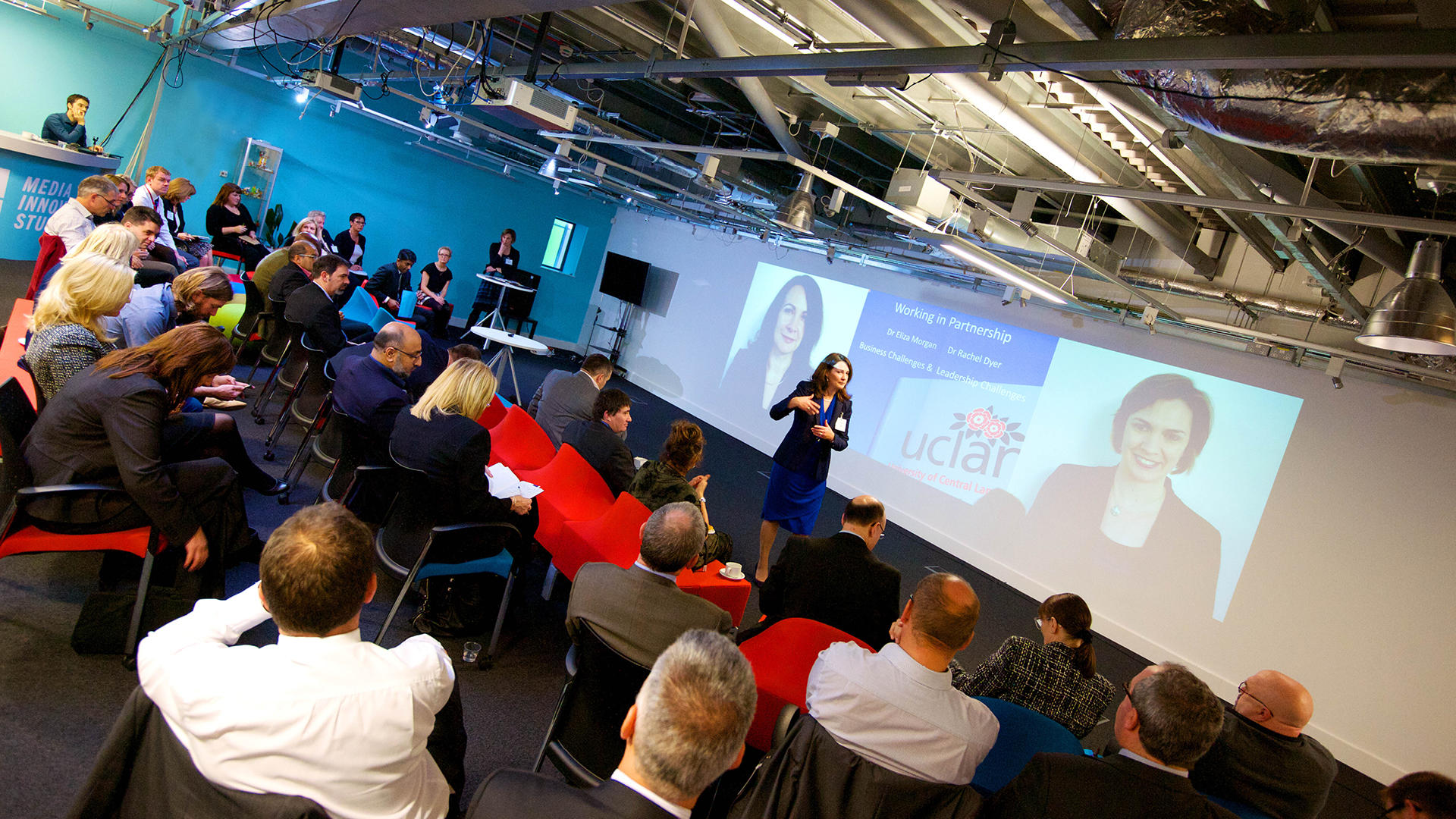An events, digital and film company is set to make savings of more than £3,000 annually as a result of support from the Making Carbon Work (MaCaW) project.
Leyland-based Glasgows will cut its energy usage by 29,000 kilowatt hours of energy, saving £3,132 and 12.3 tonnes of CO2e per year, once measures suggested by MaCaW’s expert advisers have been implemented.
The project, which was set up to help Lancashire SMEs move to a low carbon model, has also enabled the company to successfully apply for a match funded grant for the installation of LED lighting, which will shave 16 per cent off its electricity bill. A grant of £4,300 was awarded, representing 50 per cent of the cost of the LED technology. Grants are available up to a maximum of £8,000 through the project.
Survey of Glasgows’ energy use delivers carbon cutting results
Established in 1986, Glasgows has been based on Leyland’s Centurion Business Park since 2016. With a team of 26 employees, the events, digital and film company services a customer-base which includes several central government organisations.
The process, which is still ongoing, saw MaCaW Business Engagement Officer Mark Nelson and auditor and Project Manager Joshua Balmer working with the company to produce a detailed carbon assessment audit. The MaCaW team then calculated the business’ carbon footprint and worked out how best to reduce its energy usage. Suggestions included developing an energy policy, nominating energy champions, setting heating and cooling controls to maintain a constant temperature, replacing light fittings with LED and using PIR and daylight sensors to ensure lights in less-used areas aren't left on when not required.
Creating tangible bottom-line benefits
Glasgows finance director Bernie Gorrell said: “The MaCaW team carried out a detailed survey of our building, talking to staff with regards to how it is used and looking at energy bills. As a result, they prepared a comprehensive report with suggestions on how to become much more energy efficient through making changes to our building and working practices.
"We are fully committed to implementing all the recommendations and will be working with a lighting consultant to carry out the work."
“With the grant funding and the reduction in energy costs, the project should pay for itself within four years and we will have gained better lighting throughout the building, significantly reduced energy bills and a more sustainable way of working.”
Mark Nelson added: “Our knowledge helped Glasgows to address behavioural practices that they may not otherwise have been able to identify. Sometimes these changes can be quite simple but incredibly effective.
“Setting the carbon footprint baseline will represent evidence that the business has implemented strategies to reduce its carbon footprint, which will help the firm to be more competitive in the UK’s increasingly environmentally focused business environment.
“In particular, the grant will assist the business in purchasing the energy saving LED equipment, while our other recommendations will help to reduce energy usage and therefore costs.”
MaCaW is a University of Central Lancashire (UCLan) project, an industry and academic collaboration funded by the European Regional Development Fund (ERDF) alongside , and supported by Boost; Lancashire’s business growth hub.
For more information please email macaw@uclan.ac.uk.

